Related Research Articles
A rabbi is a spiritual leader or religious teacher in Judaism. One becomes a rabbi by being ordained by another rabbi—known as semikha—following a course of study of Jewish history and texts such as the Talmud. The basic form of the rabbi developed in the Pharisaic and Talmudic eras, when learned teachers assembled to codify Judaism's written and oral laws. The title "rabbi" was first used in the first century CE. In more recent centuries, the duties of a rabbi became increasingly influenced by the duties of the Protestant Christian minister, hence the title "pulpit rabbis", and in 19th-century Germany and the United States rabbinic activities including sermons, pastoral counseling, and representing the community to the outside, all increased in importance.
Semikhah is the traditional Jewish name for rabbinic ordination.

The Hebrew Union College – Jewish Institute of Religion is a Jewish seminary with three locations in the United States and one location in Jerusalem. It is the oldest extant Jewish seminary in the Americas and the main seminary for training rabbis, cantors, educators and communal workers in Reform Judaism. HUC-JIR has campuses in Cincinnati, Ohio, New York City, Los Angeles, and Jerusalem. The Jerusalem campus is the only seminary in Israel for training Reform Jewish clergy.
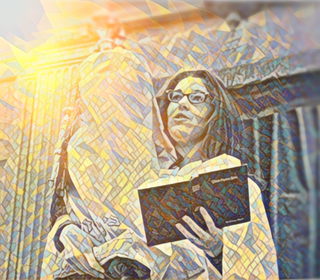
Sally Jane Priesand is America's first female rabbi ordained by a rabbinical seminary, and the second formally ordained female rabbi in Jewish history, after Regina Jonas. Priesand was ordained by the Hebrew Union College-Jewish Institute of Religion on June 3, 1972, at the Plum Street Temple in Cincinnati. After her ordination she served first as assistant and then as associate rabbi at Stephen Wise Free Synagogue in New York City, and later led Monmouth Reform Temple in Tinton Falls, New Jersey from 1981 until her retirement in 2006. She is featured in numerous books including Rabbis: The Many Faces of Judaism and Fifty Jewish Women who Changed the World.
Jewish feminism is a movement that seeks to make the religious, legal, and social status of Jewish women equal to that of Jewish men in Judaism. Feminist movements, with varying approaches and successes, have opened up within all major branches of the Jewish religion.
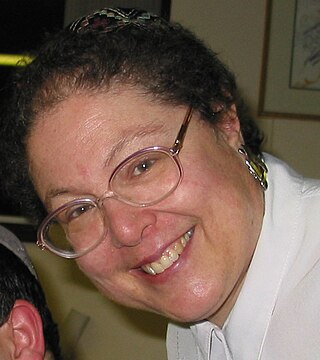
Jacqueline Hazel "Jackie" Tabick is a British Reform rabbi. She became Britain's first female rabbi in 1975. She retired in 2023 as convenor of the Movement for Reform Judaism's Beit Din, the first woman in the role, and until its closure in 2022 was also Rabbi of West Central Liberal Synagogue in Bloomsbury, central London.
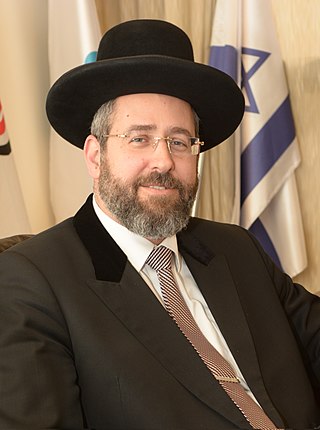
The Chief Rabbinate of Israel is recognized by law as the supreme rabbinic authority for Judaism in Israel. The Chief Rabbinate Council assists the two Chief Rabbis, who alternate in its presidency. It has legal and administrative authority to organize religious arrangements for Israel's Jews. It also responds to halakhic questions submitted by Jewish public bodies in the Diaspora. The Council sets, guides, and supervises agencies within its authority.
Open Orthodox Judaism is a Jewish religious movement with increased emphasis on intellectual openness and a more expansive role for women. The term was coined in 1997 by Avi Weiss, who views halakha as permitting more flexibility than the normal practices of Orthodox Judaism.

Women rabbis are individual Jewish women who have studied Jewish Law and received rabbinical ordination. Women rabbis are prominent in Progressive Jewish denominations, however, the subject of women rabbis in Orthodox Judaism is more complex. Although a significant number of Orthodox women have been ordained as rabbis, many major Orthodox Jewish communities and institutions do not accept the change. In an alternative approach, other Orthodox Jewish institutions train women as Torah scholars for various Jewish religious leadership roles. These roles typically involve training women as religious authorities in Jewish Law but without formal rabbinic ordination, instead, alternate titles are used. Yet, despite this alteration in title, these women are often perceived as equivalent to ordained rabbis. Since the 1970s, over 1,200 Jewish women have been ordained as rabbis.
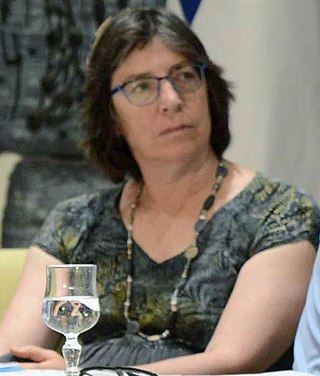
Naamah Kelman-Ezrachi is an American-born Reform rabbi who was named as Dean of the Hebrew Union College-Jewish Institute of Religion campus in Jerusalem starting in July 2009. In 1992, Kelman made history as the first woman in Israel to become a rabbi when she received her rabbinic ordination from Rabbi Alfred Gottschalk.
Sandy Eisenberg Sasso is the first woman to have been ordained a rabbi in Reconstructionist Judaism. She was ordained by the Reconstructionist Rabbinical College in Philadelphia, on May 19, 1974. She is also the author of many children's books on religious topics.
Rebecca Dubowe is the first deaf woman to be ordained as a rabbi in the United States.
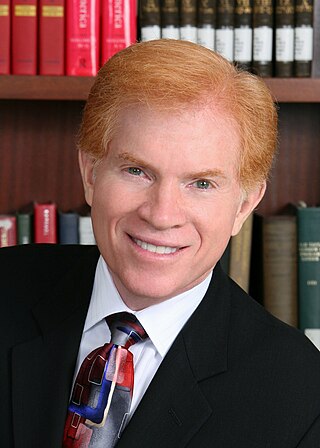
Gary Phillip Zola is the executive director of The Jacob Rader Marcus Center of the American Jewish Archives (AJA) and the Edward M. Ackerman Family Distinguished Professor of the American Jewish Experience & Reform Jewish History at Hebrew Union College-Jewish Institute of Religion (HUC-JIR) in Cincinnati. Since 1998, he has served as the second executive director of The Jacob Rader Marcus Center of the American Jewish Archives (AJA), succeeding his teacher and mentor, Jacob Rader Marcus (1896–1995). He is also editor of The Marcus Center's award-winning semi-annual publication, The American Jewish Archives Journal.
Einat Ramon was the first Israeli-born woman to be ordained as a rabbi. She was also the first woman and the first sabra to head a Conservative rabbinical school, specifically the Schechter Rabbinical Seminary in Jerusalem, where she was dean from 2005 to 2009. Since 2011 she no longer identifies as a rabbi, heads the Marpeh training program for spiritual caregivers in Jerusalem, and teaches modern Jewish thought and Jewish feminism at the Schechter Institute.
Laura Geller is an American rabbi. She serves as the rabbi emerita of Temple Emanuel in Beverly Hills, California.

Sarah Schechter is the first female rabbi in the U.S. Air Force. She joined the Air Force as a chaplain candidate, and became a chaplain when she was ordained as a Reform rabbi in 2003. Her father was an Air Force chaplain in 1960.
Ellen Weinberg Dreyfus is an American rabbi. She is a founder and former president of the Women's Rabbinic Network, which was founded in 1976 by fifteen female rabbinical students.
This is a timeline of women rabbis:
Carole Beth Balin is a Reform rabbi and professor of Jewish history at Hebrew Union College-Jewish Institute of Religion in New York City. Her research interests include Eastern European and American Jewish history, the history of Reform Judaism, and gender studies. She received laudatory reviews for her 2003 book To Reveal Our Hearts: Jewish Women Writers in Tsarist Russia, and has co-edited two other books. She is a co-curator of "Bat Mitzvah Comes of Age", a traveling exhibition sponsored by the Smithsonian-affiliated National Museum of American Jewish History and the Moving Traditions Jewish non-profit.
References
- ↑ "Rabbis in the United States | Jewish Women's Archive". Jwa.org. 1903-02-14. Retrieved 2013-10-13.
- ↑ "Rabbi Rebecca Dubowe - Temple Adat Elohim". Adatelohim.org. Retrieved 2013-10-13.
- ↑ Carole B. Balin (1997). "From Periphery to Center: A History of the Women's Rabbinic Network". Central Conference of American Rabbis Journal. Archived from the original on July 18, 2012. Retrieved June 30, 2012.
- ↑ "The Sisterhood 50 –". Forward.com. 22 July 2010. Retrieved 2013-10-13.
- ↑ Why a small word change is a big deal for Reform women rabbis JTA, May 31, 2016
- ↑ Hirshel Jaffe (4 May 2016). "The Message of the Sacred Calling: Our Journey to True Equality | RavBlog". Ravblog.ccarnet.org. Retrieved 2016-05-26.
- ↑ Zauzmer, Julie (2012-12-14). "'I not only envisioned it. I fought for it': The first female rabbi isn't done yet". The Washington Post. Retrieved 2016-05-26.
- ↑ Schorr, Rabbi Rebecca Einstein and Graf, Rabbi Alysa Mendelson, eds. (2016). The Sacred Calling: Four Decades of Women in the Rabbinate. Table of Contents (pp. vii-xiii). Chicao: CCAR Press. http://www.ccarpress.org/admin/manage_assetlibrary/file.asp?id=04646
- ↑ "Area Rabbi Tapped for Leadership Role with Women's Rabbinic Network - SRQ Daily Aug 30, 2022". www.srqmagazine.com. Retrieved 2022-09-13.
